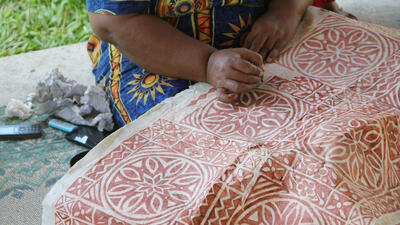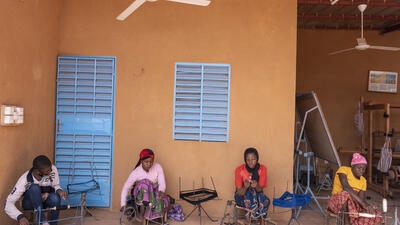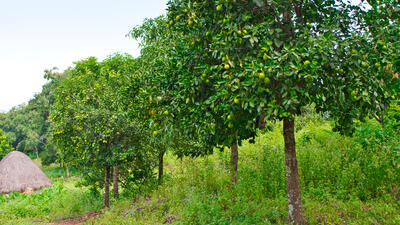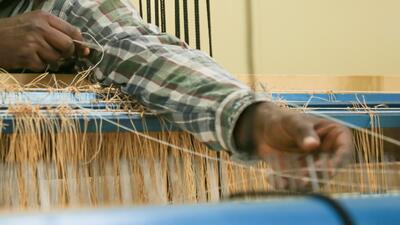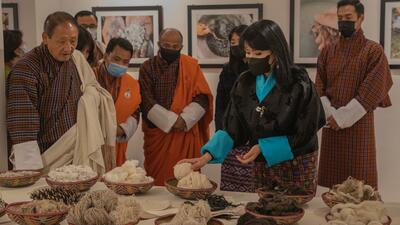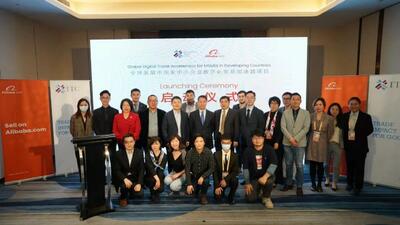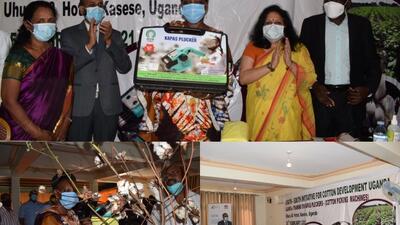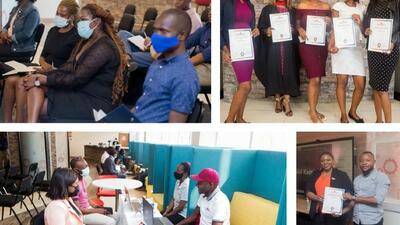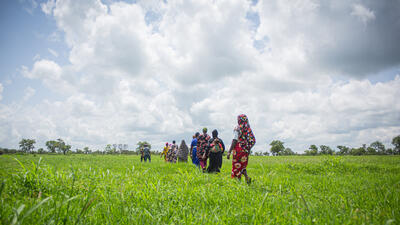

Four years of Mitreeki: how SITA has translated big ideas into tangible results for 300 women-led businesses in East Africa
- Women entrepreneurs represent a wealth of untapped potential to contribute to Sustainable Development Goals, including the growth of developing economies.
- To support women-entrpreneurs in the most impactful way possible, SITA conceived of the Mitreeki model. Based on a synergistic East Africa – India Partnership, Mitreeki supports women in key sectors to develop their businesses.
- Having launched Mitreeki four years ago in Kigali, Rwanda, in collaboration with SheTrades Rwanda, SITA has translated big ideas into tangible results for 300 entrepreneurs, including 45 fashion businesses who are now kitted-up with their own e-commerce platforms, through which to make sales.
Women are playing an increasingly vital role in the growth of developing economies. However, there are numerous obstacles women must overcome to build a successful business.
In March 2017, SITA convened 60 women entrepreneurs from Ethiopia, Kenya, Rwanda, Uganda and Tanzania together with high-level policymakers to launch the Mitreeki initiative in Kigali, Rwanda. Based on a synergistic East Africa – India Partnership, Mitreeki leverages on Indian expertise to support women looking to start or develop their businesses.
The launch of Mitreeki coincided with the launch of SheTrades Rwanda, ITC’s worldwide programme dedicated to fostering women’s entrepreneurship, and the two were launched in the same two-day conference. SheTrades Rwanda gathered high-level delegates to learn about the value of women’s entrepreneurship in Sustainable Development in broad terms. Mitreeki invited women entrepreneurs from East African countries to meet with policymakers and discuss some of their specific challenges, chief among them: access to finance, education, training and global markets. SITA’s founding purpose is to facilitate South-South Cooperation between East Africa and India; in the spirit of this, the launch in and of itself also provided a platform for women entrepreneurs from the two regions to directly connect with one another.
Four years on, Mitreeki has had several waves of tangible results. Not least in the Fashion sector: 45 fashion businesses are now set up with functioning e-commerce platforms from which they are making sales.
Big ideas
In East Africa, women entrepreneurs lack capacity, knowledge and trading opportunities. Mitreeki addresses these three most prevalent obstacles holding back aspiring business leaders. Access to appropriate and useful technology and to affordable finance are crucial elements for building capacity, whilst South-South cooperation is a silver bullet for developing much-needed knowledge and skills. South-South cooperation with India is also a sleeping giant in terms of opportunities for trade. With all this in mind, SITA conceived of the Mitreeki model, providing wrap-around support and context-specific training to talented entrepreneurs in sectors where women have particular potential to thrive: Fashion, Agribusiness, IT and Social Entrepreneurship.
To manifest these big ideas, discussions at the 2017 launch dug deeper into some of the challenges – what specific knowledge do East African businesses lack? Where can technology help build capacities? How can small companies attract funding? What do investors look for? How can a small company learn about and tap into international markets?
Taking well-informed risks is key to business, but across the world women entrepreneurs are more risk-adverse in business than men. Through training and mentoring, Mitreeki supports women to develop skills, knowledge and therefore confidence so they can make good business decisions. SITA also connects women with one another: Communities of Practice are peer-to-peer platforms, which help women entrepreneurs realize the potential they harbour within themselves to become more confident. Lastly, SITA’s experts also connect women to entrepreneurial opportunities and buyers.
Through the Mitreeki programme, SITA has translated the big ideas from 2017 into tangible results in 2021 – including by equipping 45 budding fashion businesses with online shops.
Tangible results
Mitreeki has supported 90 women-led agribusinesses, and in previous years a number of women breaking into IT and social enterprise. An impressive 160 East African fashionpreneurs have benefitted from the three editions of the Mitreeki Fashion Incubator Programme.
As with all Mitreeki programmes, these 160 entrepreneurs benefitted from coaching, training, and Q&As with high-profile experts. In the case of fashion, this meant they graduated from Mitreeki confident in the following ten knowledge areas:
- Scaling up production
- Pricing and costing
- Making the most of brand identity
- Designing a cohesive collection (read more on this here)
- Marketing
- Making the most of social media
- Choosing distribution models
- Financial management
- Business administration, and
- Sustainability concepts – including why they matter!
The women entrepreneurs also developed lasting connections with one another through online forums moderated by an expert in the field. Feedback from the women has confirmed that through interacting with each other, they become confident of their abilities and potential; SITA experts have observed this first-hand too.
The positive results of the Mitreeki Fashion Incubator Programme are particularly palpable in the fact that 45 of the fashion entrepreneurs have now been kitted-up with their own websites and e-commerce platforms. These online shops are directly enabling the women to transact deals, as well as improve their company’s marketability. Crucially, selling online makes it easier for the women entrepreneurs to reach international markets and fetch higher prices for their goods.
The professional and reliable websites have been built by Mitreeki experts according to the specific needs of each businesses. Web development expert Mr. Sandeep Brar trained the creative designers in one-to-ones on how to maintain their online platform, and how to continue getting the most of it in years to come!
The achievements of Mitreeki graduates are further testament to the effectiveness of SITA’s Mitreeki model. For example, Ranks Leather is a Kenyan company specializing in leather products such as footwear and accessories. Founder, CEO and Mitreeki student, Angela Kimani has concluded trade deals with two local suppliers, on shoe accessories and on canvas. In many cases, entrepreneurs have also been supported to find and pursue opportunities to gain publicity, and/or to connect with financial institutions and potential Indian suppliers. For example, Rwandan companies such as Zima Enterprise, Igisura company, Work Roselyne and Ishyo Food have been connected to financial institutions and successfully qualified for grants.
How does strengthening women-led fashion businesses contribute to Sustainable Development Goals?
These tangible results contribute to a wider tide of positive change, because flourishing, resilient women-led fashion businesses contribute to Sustainable Development Goals in three major ways. First: by boosting the sector, they generate economic growth. Second, flourishing fashion sector generates more decent employment opportunities for the eradication of poverty (SDG8). And thirdly, since fashion employs vastly more women than men, the vast majority of these skilled jobs will go to women, which leads to economic empowerment for women (SDG5).




